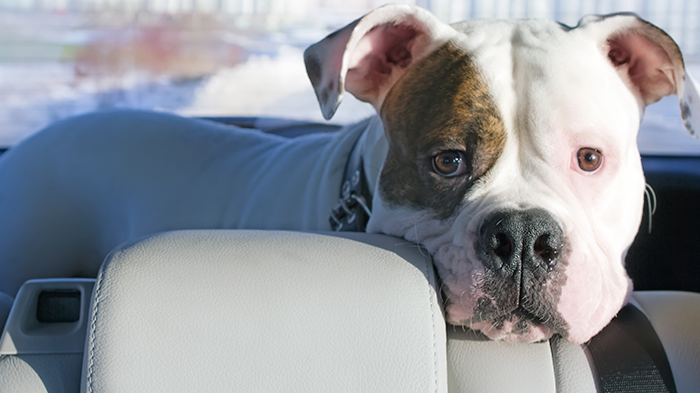Scooting in Dogs: Why Is My Dog Dragging Their Bum On The Ground?
Scooting is used to describe a dog dragging their bottom along the ground.
Bare ground, grass, carpet, anything will do. It is not a new trick your dog invented; they are trying to relieve an itch, pain, or discomfort that they cannot reach otherwise.

Anal gland issues
If you’re one of the people whose mind immediately jumps to an anal gland problem, chances are high, you might be right.
Anal glands are scent glands on either side of the anus, the same ones that skunks use to spray nasty-smelling stuff on predators. It appears they are designed as part of the marking mechanism; a form of biological ID. The anal gland content travels through ducts for a small portion to be squeezed out along with each poop. If the duct(s) become obstructed, trouble ensues.
If your dog’s anal sacs are inflamed, blocked, or abscessed, they might also chew or lick around the area, have a hard time pooping as well as you might notice bad odor or swelling.
Make no mistake; anal gland issues can get not only quite messy but also very painful for your dog.
Rectal prolapse
Doesn’t that sound plenty painful? Your dog’s rectum can prolapse both from constipation or severe diarrhea. There would be visible tissue sticking out of your dog’s bum.
Worms
While not as common, tapeworms, too, can cause enough discomfort to make your dog scoot.
Tapeworms are not directly contagious, but your dog can ingest eggs when they swallow a flea. Cookie most likely got tapeworm from eating a whole squirrel.
If you ever saw the little segments crawling out, you could see how that could be uncomfortable. You may or may not notice little dried-up segments around your dog’s anus on their bed as well.
Skin allergies
Often skin allergies manifest by itching in very specific areas. For example, it’s common to see discomfort inside the ears, between the toes, and around the bottom. Sometimes the inflammation involved in the allergic response leads to the blocking of the fine anal sac ducts, and so they become impacted secondarily.
There are other potential causes, too, such as wounds or tumors. So if your dog starts scooting, don’t get mad; get busy getting them the help they need.
Related articles:
Bad Odor in Dogs: Why Is My Dog Stinky?
Further reading:
Why Is My Dog Dragging Its Bottom?

Cookie ate a shole squirrel?? Yikes! My new little dog has been scooting. We started giving her pumpkin. We know she’s been treated for worms as a preventative. She does have itchy skin so we’ll look further into that as a possible culprit. Great post. Thanks!
I had no idea that dogs did this and it could cause real problems especially allergies. I would be asking my vet for dvice and seeing what needed to be done!
Fantastic information and I try to get Layla’s anal glands cleaned by her groomer every couple of months to keep her healthy, she has not scooted in a long time but if she does off to the groomers we go.
Super information! Henry has developed an “itch” on the back side. He was at the vet last week and had a thorough check with blood work. The conclusion is that he has allergies and hopefully with snow his allergies will improve. Terrific breakdown on why a dog could scoot! I’m sharing with all my dog parents.